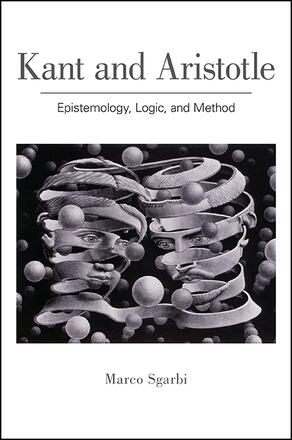
Kant and Aristotle
Epistemology, Logic, and Method
Alternative formats available from:
A historical and philosophical reassessment of the impact of Aristotle and early-modern Aristotelianism on the development of Kant’s transcendental philosophy.
Description
Kant and Aristotle reassesses the prevailing understanding of Kant as an anti-Aristotelian philosopher. Taking epistemology, logic, and methodology to be the key disciplines through which Kant's transcendental philosophy stood as an independent form of philosophy, Marco Sgarbi shows that Kant drew important elements of his logic and metaphysical doctrines from Aristotelian ideas that were absent in other philosophical traditions, such as the distinction of matter and form of knowledge, the division of transcendental logic into analytic and dialectic, the theory of categories and schema, and the methodological issues of the architectonic. Drawing from unpublished documents including lectures, catalogues, academic programs, and the Aristotelian-Scholastic handbooks that were officially adopted at Königsberg University where Kant taught, Sgarbi further demonstrates the historical and philosophical importance of Aristotle and Aristotelianism to these disciplines from the late sixteenth century to the first half of the eighteenth century.
Marco Sgarbi is Professor of History of Philosophy at the Università Ca' Foscari, Venezia, Italy.